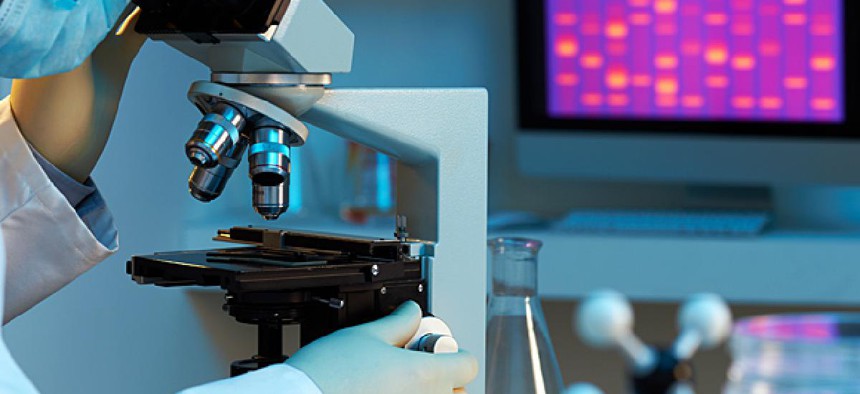NIST Aims to Fix Forensic Investigation Tactics, With Help From the Dutch

18percentgrey/Shutterstock.com
The U.S. agency and Netherlands Forensic Institute seek to sharpen the science of evidence analysis outside the trial room.
When federal officials recently announced a new, independent commission to advance the country's flagging work in forensic testing, the head of a pioneering Dutch evidence analysis institute was listening -- and advising -- from the sidelines.
Four years ago, the National Academy of Sciences recommended the U.S. government create an agency dedicated to forensic science, after observing that the Justice Department’s longtime oversight was prejudicing research agendas. To be fair, a nationwide logjam of DNA evidence that goes back decades also has starved Justice of funding for CSI-like science projects, some experts say.
The new forensic science body, carved out earlier in February, will have 30 members, including academics, prosecutors, defense attorneys, judges and representatives from other groups with interests beyond merely law enforcement. The commission will vet guidelines for labs proposed by groups of forensic practitioners and researchers. The National Institute of Standards and Technology will organize the working groups.
The focus on fixing the field of evidence evaluation follows continuous reports of analysts botching cases due to sloppy technique or ill-defined regulations. The Supreme Court this week takes up a case questioning a Maryland law that lets authorities collect DNA -- from individuals who are arrested but not convicted -- to match the genetic material against samples from cold cases.
Across the Atlantic, the government-owned Netherlands Forensic Institute already has cleared DNA backlogs and managed to serve national and international agencies with cutting edge software and hardware. Dutch officials attribute their success largely to a unique business model. The autonomous institute is self-financed by charging governments and defense lawyers who pay for prompt evidence processing and new forensic instruments.
For example, the agency has sold U.S. federal departments a tool it developed to perform forensic analysis on microchips. "They are not using it only to do cybercrime," the institute's Chief Executive Officer Tjark Tjin-A-Tsoi said in an interview. He declined to identify the U.S. agencies or describe the types of investigations they are conducting with the product.
The institute's forensic information technology department is the fastest growing division because "there is almost no crime that does not leave cybertraces" Tjin-A-Tsoi said.
As of now, the National Commission on Forensic Science, the name of the new U.S. panel, has no intention of becoming a money-making venture.
"The commission is not like the board of an integrated company, like the board of NFI," Tjin-A-Tsoi said. "Nevertheless, the commission may at a certain point decide to promote the integrated business model, if it thinks that is in the interest of the forensic field, but this is up to the commission of course."
On Feb. 15, the day U.S. officials announced the forensic science panel, Dutch and NIST leaders met to update each other on future plans.
According to the Dutch officials, NIST had expressed interest in creating an enterprise similar to theirs when briefed by the institute several times during the past year.
"NIST is looking forward to collaborating with NFI on areas such as [research and development], standards development, education and training, and forensic governance," agency spokeswoman Jennifer Huergo said this week. But the Netherlands Forensic Institute has no connection to the commission, she said.
Justice Department officials said they did not consider the Netherlands Forensic Institute when designing the U.S. forensic commission. Unlike the Dutch officials, the U.S. attorney general cannot require that federal laboratories follow the guidelines the members recommend.
(Image via 18percentgrey/Shutterstock.com)






